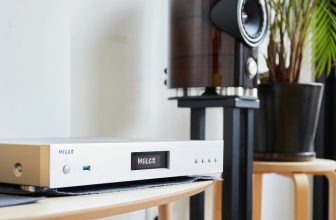
In the ever-evolving music industry landscape, artists now have more music distribution opportunities than ever. One of the key decisions artists face is whether to opt for self-distribution or work with music distributors.
Each option has its own pros and cons, and understanding them can help artists make informed decisions. Let’s explore the important points when considering self-distribution versus music distributors.
Control And Autonomy

Self-distribution empowers artists to retain complete control and autonomy over their music. They have the freedom to choose when and where to release their music, set their own pricing, and make all creative decisions. This level of control allows artists to establish their unique brand and artistic vision.
On the other hand, working with music distributors can provide access to established distribution networks, increasing the potential reach of the music. However, artists may have to relinquish some creative control and adhere to the distributor’s guidelines and requirements.
Reach And Promotion
Music distributors have established relationships with various streaming platforms, online stores, and physical retailers, enabling artists to reach a broader audience.
Distributors can secure placements on popular playlists, pitch songs to influential curators, and provide promotional support. They also handle the logistics of delivering music to different platforms, saving artists time and effort.
Self-distribution, while offering full control, requires artists to invest more time and resources into reaching audiences and building their own promotional strategies.
Royalties And Revenue
One of the significant advantages of self-distribution is the potential for higher royalties and revenue. Artists can bypass the traditional distribution model and retain more of their earnings. Direct distribution eliminates intermediaries, meaning artists don’t have to share a percentage of their revenue with distributors.
However, self-distribution also means artists need to handle the financial aspects themselves, such as collecting and managing royalties, accounting, and paying for distribution and marketing expenses.
Working with music distributors often involves sharing a percentage of the revenue generated from sales and streams, but it also means that artists can benefit from the distributor’s expertise in royalty collection and financial management.
Expertise And Support
Music distributors bring valuable expertise and support to the table. They deeply understand the industry, trends, and best practices for maximizing exposure and generating revenue. They offer marketing, analytics, and rights management services, which can help artists navigate the complex music landscape.
Distributors may also provide additional resources like artist development programs, promotional opportunities, and networking connections. Self-distribution requires artists to be self-reliant and knowledgeable about various aspects of the industry. They need to invest time in learning about marketing strategies, music rights, metadata, and other technical requirements.
Long-Term Sustainability
Considering long-term sustainability is crucial when evaluating self-distribution versus working with music distributors.
Self-distribution may offer more immediate control and potential for higher revenue, but it requires artists to dedicate significant time and resources. It can be a challenging path, especially for artists who don’t have the necessary expertise or resources to handle all aspects of distribution effectively.
Working with music distributors can provide a sense of stability and support, allowing artists to focus more on their craft. Distributors have established networks and industry relationships that can open doors to opportunities that may not be easily accessible to independent artists.
Time And Resources
Self-distribution requires artists to invest substantial time and resources into various aspects of music distribution, including uploading music to multiple platforms, managing metadata, coordinating releases, and handling customer support.
Artists must also stay up-to-date with industry trends and changes in distribution platforms. This can be time-consuming and may detract from the creative process. Working with music distributors can free up artists’ time and allow them to focus more on creating music, as the distributors handle distribution’s technical and logistical aspects.
Global Reach
While self-distribution allows artists to release music independently, it may be more challenging to reach a global audience without the backing of a distributor. Distributors often have established relationships with international platforms and retailers, making the process of worldwide music distribution easier.
They also have localized knowledge and connections that can help artists navigate different markets and reach listeners in specific regions. Partnering with a music distributor can offer valuable support and expertise for artists aiming to expand their reach globally.
Choose The Right Path For Music Distribution
Ultimately, whether artists opt for self-distribution or choose to work with music distributors, it is an individualized choice that requires a thoughtful assessment of the pros and cons.
Each path presents unique opportunities and challenges, and understanding these factors will empower artists to make informed decisions that support their artistic vision and career aspirations.






